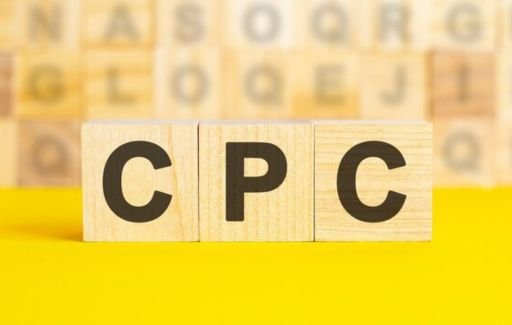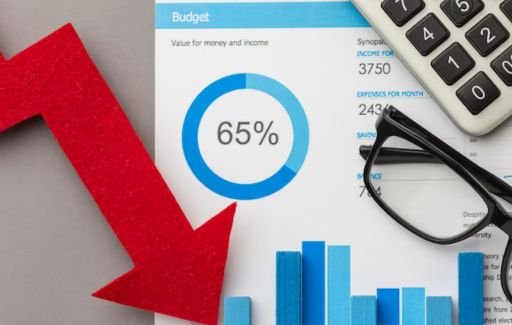


Google Ads, previously known as Google AdWords, is one of the most popular pay-per-click (PPC) advertising platforms. With Google Ads, advertisers bid on keywords relevant to their business. When someone searches for that keyword, the advertiser's ad may show on the search engine results page (SERP). Advertisers pay only when someone clicks their ad.
This pay-per-click pricing model is great for return on investment (ROI). You can control costs by setting daily budgets and maximum bids. But how much should you bid and budget? That's where cost-per-click (CPC) and cost calculators come in handy.
In this comprehensive guide, we'll cover everything you need to know about calculating costs for Google Ads, including:
Let's dive in!
CPC stands for "cost per click" and it's the amount an advertiser pays for each click to their ad.
Here's a quick overview of how CPC bidding works on Google Ads:
So in essence, the CPC is determined by the next highest bidder and your position in the auction.
Google also factors in other elements like ad relevance and clickthrough rate to determine ad rank. But bids play a pivotal role.
CPC is the primary cost metric used in Google Ads and PPC advertising. Here are some key reasons why it's so important:
Your maximum CPC bid directly impacts where your ads rank on the page. Higher CPC bids generally result in better ad positions. Top positions garner more attention and clicks.
Since you pay per click, the CPC determines what you end up paying. Higher CPCs equal higher costs per click and overall. So calculating your CPC helps control PPC costs.
Keywords with higher CPCs indicate increased competition and demand. Monitoring CPCs can help you assess which keywords are worth targeting.
You can determine ROI by factoring in CPC, conversion rate, and conversion value. Measuring this helps maximize profits.
Knowing your CPC allows you to estimate traffic volume and set daily budgets without overspending. Accurate budgets keep your campaigns running smoothly.
In summary, understanding the calculations behind CPC is crucial for running successful Google Ads and PPC campaigns. Now let's explore some tools to estimate CPC.

Google provides free CPC bid estimators right in the Google Ads interface. Here are two calculators you should use:
Google's Keyword Planner offers a helpful CPC calculator among many other tools. Here's how to use it:
The Keyword Planner CPC calculator provides averages based on recent Google Ads activity. This helps give you an idea of real-world bids.
Google's Auction Insights tool shows you actual winning CPCs for terms you've already bid on:
Auction Insights provides real CPC data from your account. This gives more personalized estimates to inform your bidding.
When in doubt, start on the lower side of CPC estimates and optimize over time. Now let's look at other factors impacting costs.
While CPC bids are the primary cost driver, some other key factors influence your overall Google Ads costs:
This metric measures how relevant your keywords and ads are to searches. Higher quality scores lead to lower CPCs. Improving quality scores can significantly reduce costs.
This determines where your ad appears. Ranking higher means more impressions and clicks, increasing costs. But it's not just about the bid. Relevance expected CTR and extensions impact rank.
Closely matching keywords usually have a higher CPC. Using broad matches may get more traffic but can cost more per click. Exact and phrase matches can help control relevancy and costs.
Search volume and competition varies across devices. For instance, mobile CPCs tend to be lower than desktops. So optimize bids by device to manage pricing.
Extensions like callouts can improve CTR and ad rank. But certain extensions come at an additional cost per click. Factor those fees in when budgeting.
Converting users may search more during business hours or on weekdays. Focusing on those high-value times with adjustments for bid and budget can affect averages.
As you assess potential CPCs, keep these other elements in mind to get the full picture of possible costs. Next, we'll talk about ways to potentially decrease CPCs.

Here are some strategies to help minimize your CPCs and overall Google Ads spend:
With the right optimization and bidding tactics, you can maintain strong ad positions and conversion volumes while decreasing CPC.
Figuring out accurate cost-per-click estimates is crucial for PPC success. Here’s a quick recap of what we’ve covered to help you forecast, plan, and reduce your CPC:
Accurately calculating CPC will allow you to efficiently manage budgets, improve ROI, and avoid overspending. Keep monitoring and optimizing over time. With the right bidding strategy, you can achieve top ad positions and conversions without breaking the bank.
Now you have an in-depth understanding of cost-per-click calculations and tools. Put these tips into action to maximize your Google Ads accounts! Let me know if you have any other questions.
A: The average Google Ads CPC varies significantly based on factors like industry, competition level, keyword targeting, and more. Across Google, the average CPC is $1-$2. For more competitive keywords, CPCs can range from $10 to $50+. Use Google's planning tools to find CPC estimates tailored to your keywords.
A: Google provides two helpful tools to calculate CPC within your accounts. The Keyword Planner gives average CPC estimates. The Auction Insights tool shows your actual average and winning CPCs per keyword. Refer to your account's recent CPCs to forecast future costs.
A: Multiply your estimated CPC for a keyword by your estimated number of clicks per month. This approximates the potential monthly spending for that term. Do this across keywords and add up costs to estimate overall ad budget needs. Factor in additional costs like extensions.
A: Ways to decrease your CPC include improving your Quality Score, using focused keywords, implementing automated bidding rules, designing highly relevant landing pages, adding extensions, adjusting match types and device targeting, and splitting tests. Start with conservative bids then optimize.
A: Not necessarily. While higher bids can help improve ad rank and lower CPC incrementally, other factors like ad and landing page relevance are more important. Bidding too high may overspend your budget. Focus first on improving the Quality Score before raising bids.
Forecasting and calculating cost-per-click is an essential part of managing a successful Google Ads campaign. By learning how to leverage Google's free keyword and auction tools, you can determine accurate CPC estimates tailored to your business.
Keep a close eye on other cost factors too like quality score, ad extensions, device targeting, and bid strategies. With the right CPC research and bid optimizations, you can drive clicks and conversions at the lowest possible price.